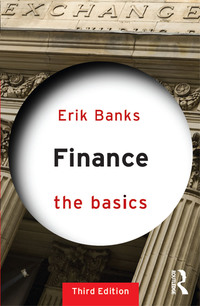Answered step by step
Verified Expert Solution
Question
1 Approved Answer
Using 750 word or more 14 - INVESTMENT IN NISSAN . Renault and the Japanese automaker Nissan have chosen to develop a unique type of


Using 750 word or more
14 - INVESTMENT IN NISSAN . Renault and the Japanese automaker Nissan have chosen to develop a unique type of alliance between two distinct companies with common interests, uniting forces to achieve optimum performance. The Alliance is organized so as to preserve individual brand identities and respect each company's corporate culture. Consequently Renault is not assured of holding the majority of voting rights in Nissan's Shareholders' Meeting. The terms of the Renault-Nissan agreement do not entitle Renault to appoint the majority of Nissan directors, nor to hold the majority of voting rights at meetings of Nissan's Board of Directors; Renault cannot unilaterally appoint the President of Nissan; on December 31, 2016, Renault occupied two of the nine seats on Nissan's Board of Directors (unchanged since December 31, 2015). Renault-Nissan B.V., owned 50% by Renault and 50% by Nissan, is the Alliance's joint decision-making body for strategic issues concerning either group individually. Its decisions are applicable to both Renault and Nissan. This decision-making power was conferred on Renault- Nissan B.V. to generate synergies and bring both automakers worldwide economies of scale. This entity does not enable Renault to direct Nissan's financial and operating strategies, which are governed by Nissan's Board of Directors and cannot therefore be considered to represent contractual control by Renault over Nissan. The matters examined by Renault-Nissan B.V. since it was formed have remained strictly within this contractual framework, and are not an indication that Renault exercises control over Nissan. Page 712 Renault can neither use nor influence the use of Nissan's assets in the same way as its own assets. Renault provides no guarantees in respect of Nissan's debt. . . In view of this situation, Renault is considered to exercise significant influence over Nissan, and therefore uses the equity method to include its investment in Nissan in the consolidation. Renault's Note D lists various restatements that Renault makes when accounting for its Nissan investment under the equity method. Some of those changes harmonize Nissan's accounting (under Japanese accounting standards). Others reflect adjustments to fair value of assets and liabilities applied by Renault at the time of acquisitions in 1999 and 2002. Required: 1. Go to Deloitte's IAS Plus website and examine the summary of the IASB'S IAS No. 28 (http://www.iasplus.com/standard/ias 28.htm), which governs application of the equity method. Focus on two areas: Identification of Associates and Applying the Equity Method of Accounting. 2. Evaluate Renault's decision to use the equity method to account for its investment in Nissan. Does Renault have insignificant influence, significant influence, or control? 3. Evaluate the fact that, when accounting for its investment in Nissan under the equity method, Renault makes adjustments that take into account the fair value of assets and liabilities at the time Renault invested in Nissan. Give an example of the sorts of adjustments that might be made. Are such adjustments consistent with IFRS? With U.S. GAAP? Explain. 4. Evaluate the fact that, when accounting for its investment in Nissan under the equity method, Renault makes adjustments for harmonization of accounting standards. Are such adjustments consistent with IFRS? With U.S. GAAP? ExplainStep by Step Solution
There are 3 Steps involved in it
Step: 1

Get Instant Access to Expert-Tailored Solutions
See step-by-step solutions with expert insights and AI powered tools for academic success
Step: 2

Step: 3

Ace Your Homework with AI
Get the answers you need in no time with our AI-driven, step-by-step assistance
Get Started


